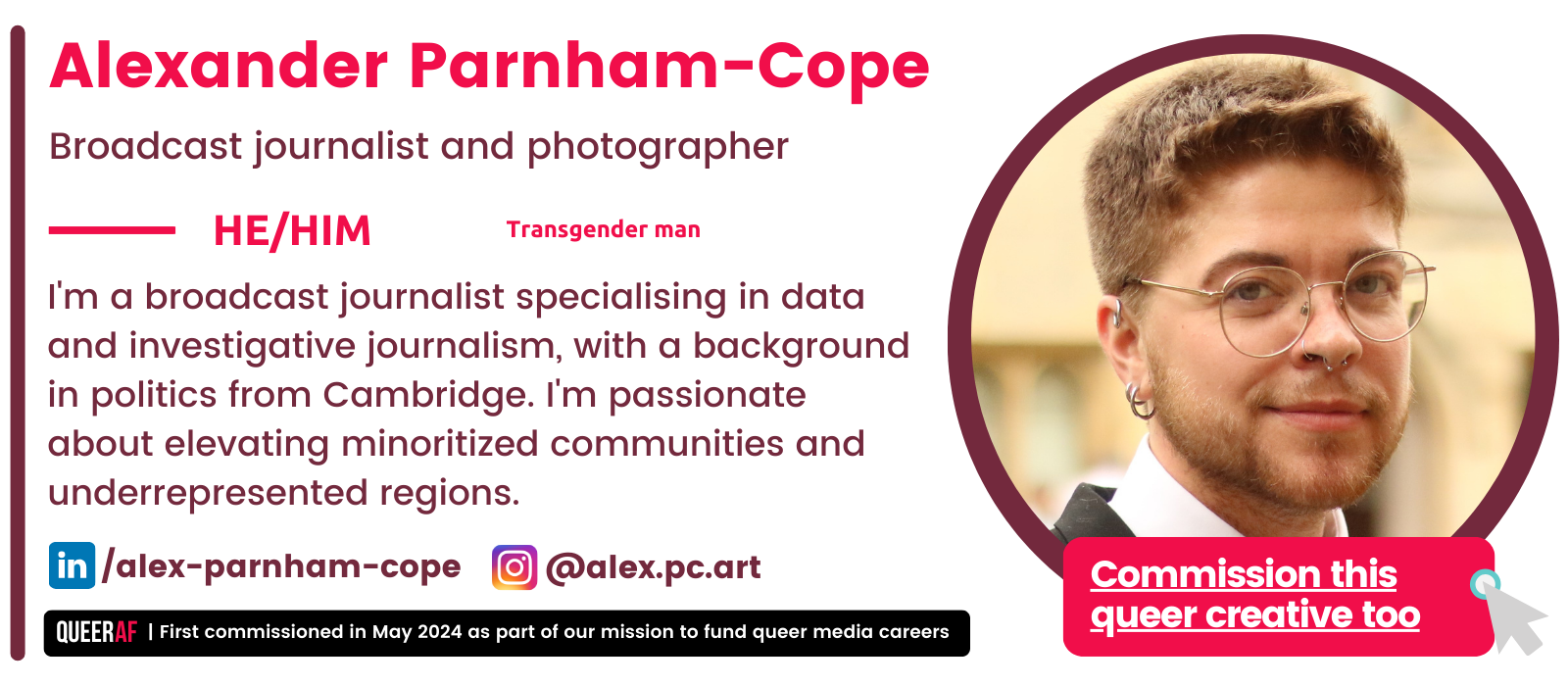
Trans healthcare saved my life. Accessing medical transition helped me overcome severe depression and rebuild my relationships as the happy, healthy young man I knew I could become.
For me, gender transition has been a lifeline to begin recovery and pursue my dream career as a journalist.
That’s why I’ve been deeply concerned by the organised campaign against transgender healthcare in this country.
Thousands of distressed gender-questioning people are abandoned on years-long waiting lists. Specialist services have been closed.
Trans youth have had access to puberty-delaying medication stripped away. All this, despite the evidence that allowing body autonomy and gender exploration reduces mental health risk factors.
The hope that gender-affirming care offers has been dampened by campaigners against trans healthcare, who feign concern for the welfare of young people. They demand that teens should suffer agonising dysphoria with no regard for the risks to their wellbeing.
When objective medical evidence is inconvenient, they ignore it entirely, excluding evidence that comes to trans-affirming conclusions. Too often, expert community research is dismissed as “biased”.
However, testimonies from those I interviewed found community fears about the risks to trans+ people’s wellbeing are sadly well-founded. Alice Litman was 20 when she took her own life after waiting over 1000 days for an NHS gender services appointment.
“That’s not care, is it”, her mother Caroline told me, “That’s just a holding cell.” An independent inquest confirmed that the long waiting times had been a factor in Alice’s death.
In no other sphere of medical research would it be considered an advantage to actively exclude the input of the very people you are researching.
Anti-trans activists are not impacted by gender-affirming healthcare, and they do not understand the risks of denying it. Yet they are building an institutional monopoly on healthcare policies in Britain.
There’s a cruel irony in the double-edged rejection of trans+ people’s voices. When I was a depressed teenager, my pleas for help were met with a paternalist dismissal by those who deemed me too naive and too distressed to make autonomous decisions about my body.
And now, as an adult transgender man, I’m demonised by my colleagues in the mainstream press as a rabid “trans activist” bent on mutilating children. As youth we’re patronised, and as adults we’re vilified. What’s clear in both cases is that our bodies are not our own.
The healthcare of young gender-questioning people should be a private matter decided in line with best medical practice. The news that the British Medical Association is critically assessing the Cass review and calls for working with trans+ people and their families is promising.
It’s time trans+ people were included in the medical conversations that affect our lives, and that community fears about mental health risks are taken seriously by those claiming to act in our interests.
Trans+ youth are taking the lead in demanding their medical autonomy, recently occupying the NHS England headquarters and bravely asserting “we are not pawns for your politics.”
It’ll be a long and challenging fight to overturn a well-funded campaign to crush trans-affirming healthcare in this country - but we are not going to stop fighting it.


I started QueerAF as a response to the bad practices I saw while working in gay media and mainstream media newsrooms:
We first began as a podcast when an editor told me to stop pitching 'gay stories' because there was no 'money' or 'audience' for them.
As a young, budding journalist - this was hard to hear. And its impact was huge. It made me think pursuing a career with our lives in mind was worthless. So I did something inherently queer and set out to prove that editor wrong.
We quickly built an international audience, won awards and even picked up revenue along the way - all while giving queer audio producers, what was for most of them, their first paid audio credit.
Later on, working in gay media, I experienced a different barrier to telling the stories that our community wanted. Something that got in the way of what many incredible journalists were trying to deliver.
We were told the stories that matter won't create enough clicks to make it worthwhile. It's something our community is rightly focused on this week. And I'm pleased we're having the conversation.
We're building a platform driven by people, not adverts. So, we can tell stories because they matter to the community, not for clicks. Content for you and the LGBTQIA+ world, not advertisers.
If that's the kind of media you want to see more of then take up our invitation to, invest in our unique, non-profit, press-regulated approach that delivers both queer accountability journalism and invests in a new generation of queer journalists.
If we change the newsroom, we can change the country. Let's give emerging and marginalised creatives as many opportunities to do what they do best:










